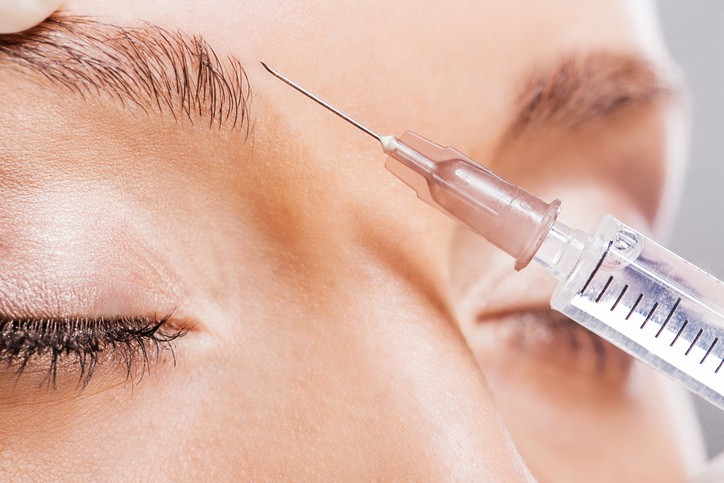Contents:
- Medical Video: Preventing Liver Cancer with Coffee?
- Gender and age
- Chronic hepatitis
- Cirrhosis
- Heavy alcohol use
- Obesity
- Type 2 diabetes
- Derivative metabolic disease
- Exposure to aflatoxin substances
- Exposure to vinyl chloride and thorium dioxide (thorotrast)
- Anabolic steroids
- Arsenic
- Parasitic infections
- Tobacco use
- Family planning pills
Medical Video: Preventing Liver Cancer with Coffee?
Risk factors are things that increase your chances of getting sick, such as liver cancer. Risk factors can be genetic, from lifestyle, or have other health conditions. You can prevent or slow down your liver development by managing your risk factors. Although some risk factors cannot be changed, there are several risk factors that can be managed through lifestyle changes.
However, it has risk factors, or sometimes some risk factors do not mean that you will get liver cancer. Some people who have liver cancer do not have or some risk factors. This only indicates that you may have a higher chance of developing liver cancer. The following is a more detailed picture of the risk factors for liver cancer:
Gender and age
If you are a man, you have a higher chance of developing liver cancer. Liver cancer is far more common in men than women. The chance for men to get liver cancer is about 1 in 81, whereas in women it is 1 in 196. Other lifestyle factors contribute to this amount. A subtype of liver cancer called fibromellar is more common in women. The risk of liver cancer increases with age too.
Chronic hepatitis
Having a long-term viral infection of the hepatitis B virus (HBV) and hepatitis C virus (HCV) is the most common risk that causes liver cancer. Because these viruses are common throughout the world, they are responsible for making liver cancer the most common cancer in many parts of the world.
HBV is a common cause of liver cancer, especially in Asia and developing countries. People infected with HBV and HCV have a high risk of developing hepatitis, cirrhosis, and chronic liver cancer.
HBV and HCV can spread from person to person through sharing contaminated needles (such as in drug use or blood transfusions), unprotected sex, or childbirth. When infected with HBV, you tend to have flu-like symptoms and yellow eyes and skin. This yellow is due to a disease called jaundice. While most people can recover from HBV infection after a while, some people with chronic infections have a high risk for liver cancer. Children and infants, who have a weakened immune system, also have a higher chance of developing liver cancer if they are infected.
HCV causes fewer symptoms than HBV, but that does not mean that it is not a serious problem. People infected with HCV tend to develop chronic infections, which are more likely to cause liver damage or even cancer.
Other types of hepatitis viruses, such as the hepatitis A virus and hepatitis E virus, can also damage your liver. Fortunately, people infected with this virus do not cause chronic hepatitis or cirrhosis, and thus do not have an increased risk of liver cancer.
Cirrhosis
Cirrhosis is a disease that is often associated with liver cancer. Most cases of liver cancer already have some level of cirrhosis. People with cirrhosis of their liver are damaged and develop scar tissue in the liver. People with cirrhosis have a risk of increasing liver cancer.
There are many causes of cirrhosis, but the most common causes are alcohol abuse, or having chronic HBV and HCV infections.
Some types of autoimmune diseases, such as primary biliary cirrhosis (PBC), which affects the liver can also cause cirrhosis. If you have PBC, your immune system attacks the bile duct in the liver. This causes the bile duct to become damaged and can cause cirrhosis. PBC continues to have a high risk of causing liver cancer.
Heavy alcohol use
Alcohol abuse is a major cause of cirrhosis, which is associated with an increased risk of liver cancer. This risk is even higher if they are heavy drinkers (at least 6 standard drinks a day).
Obesity
Excessive overweight aka obesity can cause fat in the liver tissue and cause cirrhosis. A condition that causes people who drink little or no alcohol to develop fatty tissue in the liver called non-alcoholic fatty liver disease is common in obese people. This disease is also known as NASH (non-alcoholic steatohepatitis) may be multilevel and develop cirrhosis.
Type 2 diabetes
People with type 2 diabetes tend to be overweight or obese, which as mentioned before, can cause liver problems. This risk is even higher in people who have other risk factors such as heavy alcohol use or chronic hepatitis viruses.
Derivative metabolic disease
Heredity can affect the risk of liver cancer. Some metabolic diseases are hereditary. For example, hemochromatosis derivatives cause your body to absorb too much iron from their food. Iron accumulates in our bodies, including the liver. If too much is in the liver, it can cause cirrhosis or liver cancer.
Other rare diseases that increase the risk of liver cancer include:
- Tyrosinemia
- Alpha1-antitrypsin deficiency
- Porphyria cutanea tarda
- Glycogen storage disease
- Wilson's disease
Exposure to aflatoxin substances
Aflatoxin is a substance that can cause liver cancer. They are made by mushrooms in beans, wheat, soybeans, peanuts, corn, and rice. When in a humid, warm environment, this fungus will try and infect the food you eat.
A warm climate such as tropical countries is more suitable for the growth of aflatoxins, but can occur anywhere in various parts of the world. In developing countries, products are often tested to check for aflatoxin.
Long-term exposure to this substance is a major risk factor for liver cancer. The risk is even more increased in people with hepatitis B or C.
Exposure to vinyl chloride and thorium dioxide (thorotrast)
Vinyl chloride is a chemical used to make plastic, while thorotrast is a chemical that is injected into people for x-ray tests. These chemicals can increase the risk of angiosarcoma from the liver if exposed for a long time. This also increases the risk of developing cholangiocarcinoma and hepatocellular cancer, but to a much lower level.
Prevention has been done to limit the use of vinyl chloride and thorotrast. Thorotrast is no longer used, and exposure to workers exposed to vinyl chloride is strictly regulated.
Anabolic steroids
Anabolic steroids are illegal substances commonly used by athletes to increase muscle mass and strength. Long-term use of anabolic steroids can slightly increase the risk of hepatocellular cancer. Cortisone - like steroids, hydrocortisone, prednisone, and dexamethasone, does not have the same risk.
Arsenic
Water contaminated with arsenic can increase the risk of some types of liver cancer if it is exposed for a long time. This is more common in parts of East Asia.
Parasitic infections
Parasitic infections that cause schistosomiasis can cause liver damage and are associated with liver cancer. Parasitic infections often occur in Asia, Africa and South America.
Tobacco use
Smoking damages your health at every opportunity. Smoking increases the risk of developing liver cancer. Quitting smoking can reduce the risk of liver cancer, but because you have accumulated tobacco in your heart, you still have a higher risk than those who have never smoked.
Family planning pills
In rare cases, birth control pills, also known as oral contraceptives, can cause benign tumors called liver adenomas. But it is not known whether they increase the risk of liver cancer. Further research is needed to show the direct cause between the use of birth control pills and liver cancer.
READ ALSO:
- 10 Facts You Need To Know About Cancer Cells
- Is it true that breast cancer is caused by heredity?
- 6 of the deadliest types of cancer in Indonesia












